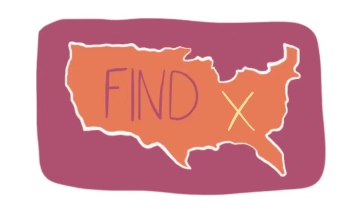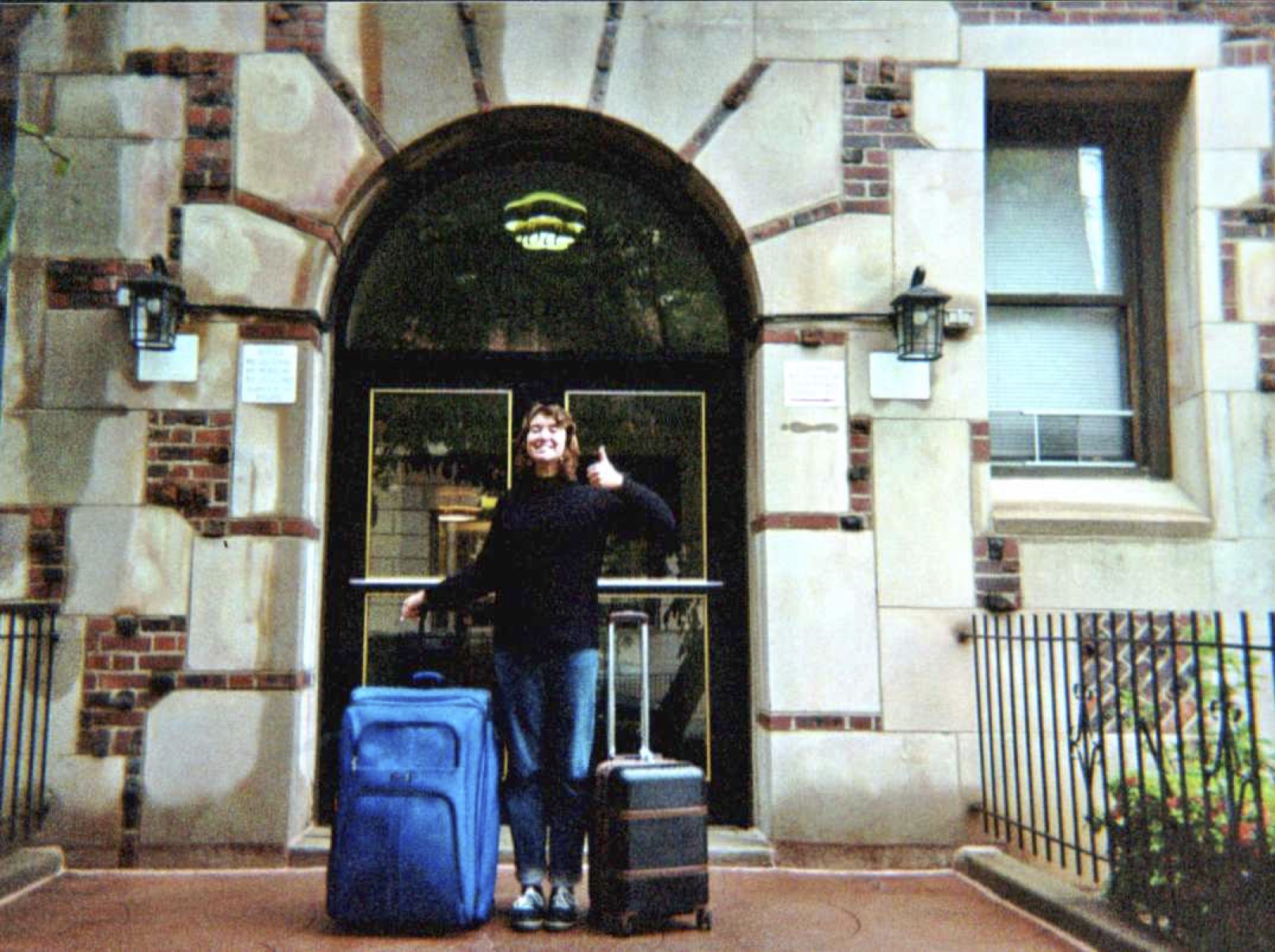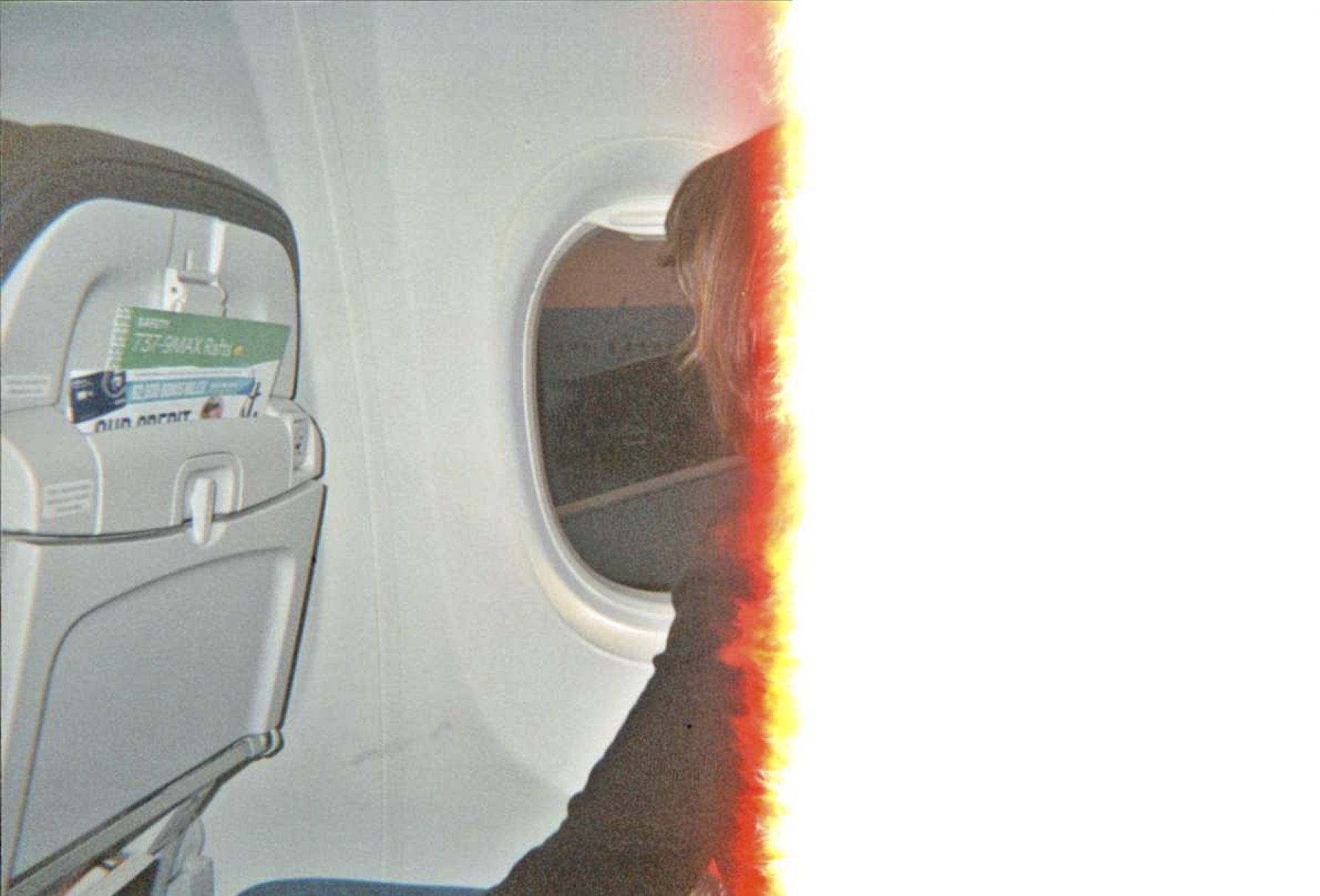ORIGINS
The name Find X came from a meeting with Lyde Sizer, who is the Associate Dean at Sarah Lawrence College. She had given me a list of twelve prompts to use for writing exercises and the first one was “Find X”. I found the prompt intriguing if not also annoying. Prompts that start like dead-ends are my least favorites. My irritation with the prompt made me curious though at how other people would respond and what would happen if all of those stories sat side-by-side, everyone finding something different. We don’t often listen to each other anymore, and we have stopped asking questions without letting those questions shut down a conversation. Visions of a fractured world are becoming many peoples reality of the future and with my own fear that we may stop talking to each other all together, I wanted to find fractures and start asking about them. I wanted to listen to stories and put them together and allow space for stories to be common ground, not battle ground. With these good intentions I pieced together a proposal—which would change overtime—and applied for a grant from the Davis Projects for Peace. I got the grant and made plans to travel to four different states, investigate what I thought would be four different fractures and I decided to call the project Find X because that is what I was doing; trying to find a multitude of differences and hold them side by side, even if when I started it seemed like a dead-end.
FINDING X
Find X covers four different areas of fracture located in four different states. Broadly, in New York I looked at Christianity, in Seattle I looked at Homelessness, in New Orleans I looked at Climate Change, and in California I looked at Mental Health. How I identified fracture was as something that I thought to be right below the problem. What this means is that instead of looking at the fracture head on, I tried to get underneath it a little—dig around in murky waters— and see what stories came up. As the project began to unfold each fracture became more and more nuanced to the point that I was unsure where one fracture started and the next ended. I visited each place for about ten days each and did as much asking around, interviews, listening, watching, and observation as I could. In total I did over 38 interviews resulting in around 60 hours of footage. This process would have not been possible without the generous welcome I had from people in each state to stay in their homes, to ask them tough questions, and be allowed the opportunity to hold their stories and truth.
STILL SEARCHING
After completing the interview process and going through the footage, I did not make any solutions, nor did I solve anything. For a while this made me feel unsure with what exactly then I set out to accomplish. However, to Find X is to locate something, to hold it and wrestle with it and to give it some love. Often then, to Find X is also to let it go. The weight of our various fractures is heavy and when I imply letting go I do not mean giving up on working towards more space for understanding, or more space for simply listening and asking questions and having space to speak. I mean letting go of trying to solve something in the first place. As a side note—as this does not make it into any of the episodes but it was crucial for me to hear it at the time that I did—I found an event while I was in New York with Angela Davis and a panel honoring the life of Kathy Boudin. The panel spoke about visions for the future and what they hope for. Someone during the Q & A portion asked about making solutions and what they all would solve. In my remembring of what Davis said she alluded to letting go of this idea of solving everything and then added, “…thank goodness I can’t solve everything, because if I did, then I would be leaving out so many people.” What I took this to mean and what I hold true from hearing her say this was that if people were able to solve everything by themselves then they would be missing the bigger story of what a true solution could be. Who is left out if the solution only comes from yourself? Doesn’t that solution that you created on your own, only replace whatever oppressing force you tried to solve? It is cyclical the nature of oppression if we work on our own to make the solution. For Find X I feel this is true. This is an introduction to work that is instinctual, it is an instinct to tell stories and to want them to be heard, it is an instinct to disagree and to want and to need. Fracture comes from our most vulnerable places of self, and that is why we rupture when they are mentioned. I am hoping that Find X can become a small wave of people finding stories, and listening. I am hoping that these podcasts can serve as a container and structure for what to do when capacity feels full, or it becomes too nuanced, or it becomes overwhelming.
By the end of creating the project I do not feel like I found X and thank goodness. Instead I met people and heard stories and thought about things in a different way. To Find X is a calling of many and it brings me back to where the project started, with a prompt that I thought was a dead-end, and it is, if you look at it alone.


